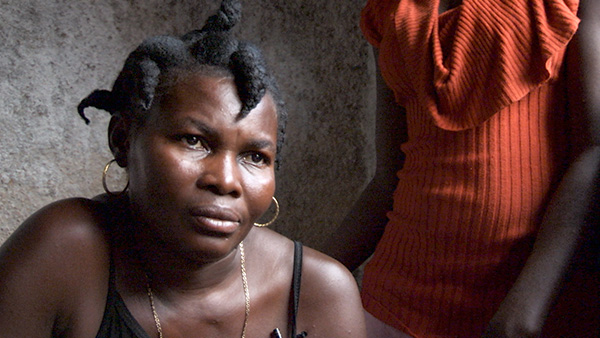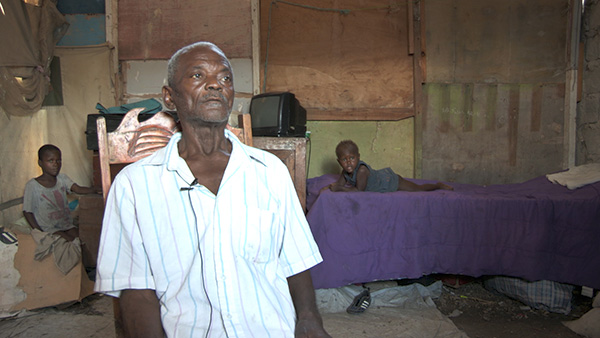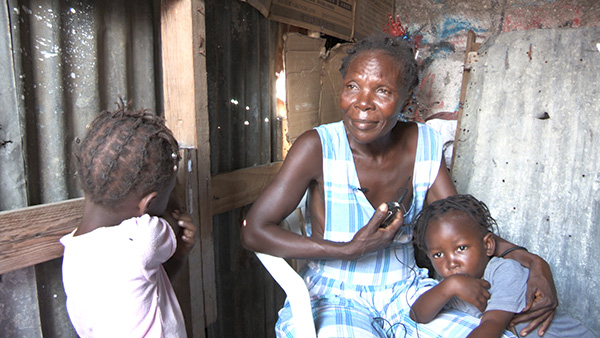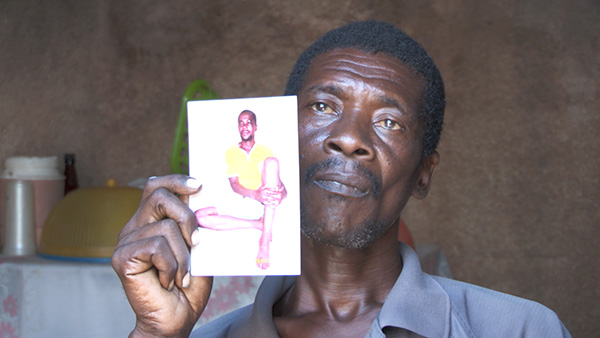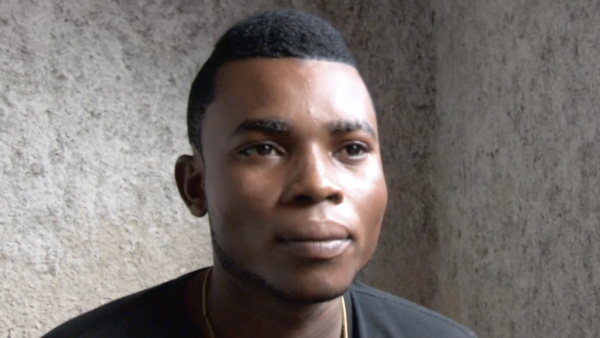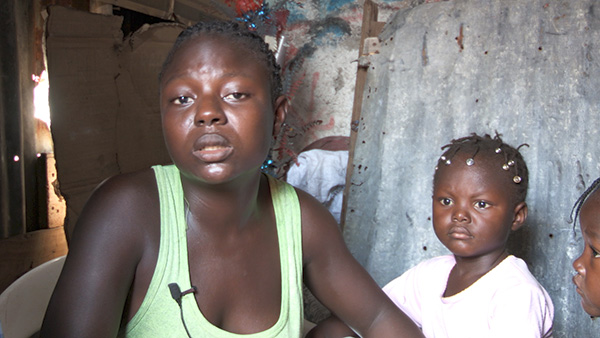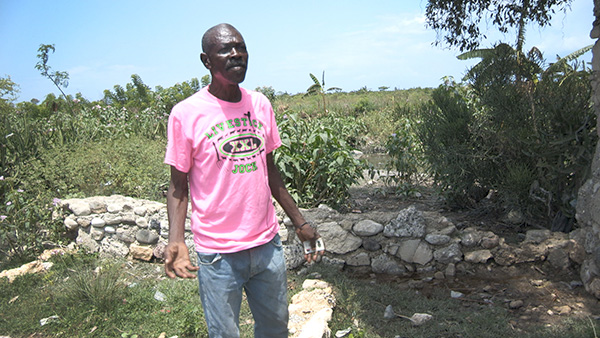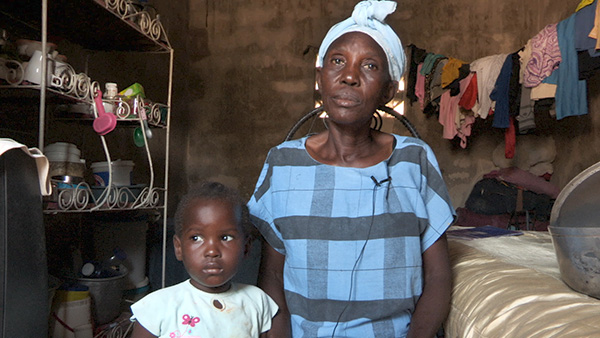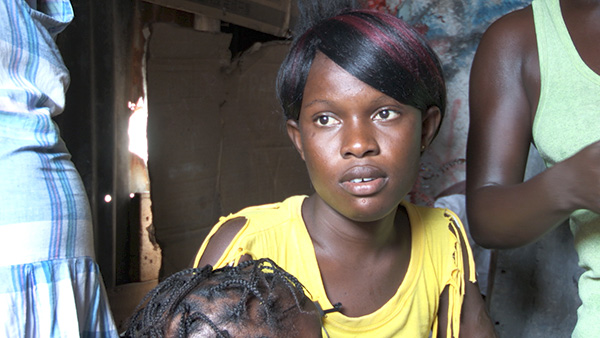participatory practices
participatory practices
Between 2005 and 2007 UN peacekeeping troops carried out several raids on Cite Soleil, a severely economically-depressed neighborhood of Port au Prince. The raids were targeted against leaders of criminal gangs but scores of other people were killed, including children, and many more injured. This documentary returns to Cité Soleil to examine the impact of those raids on the community and to find out how victims of those raids have fared in the ten years since they occurred. We contextualize the testimonies by interviewing Ricardo Seitenfus (OAS representative in Haiti at the time of the raids); Professors Camille Chambers and Ilionor Louis from l’Université d’État d’Haiti; Philip Alston, ex-UN Rapporteur on Extrajudicial Killings; Christof Heyns, member of the UN Human Rights Committee; John Carroll, a consultant at St Catherine’s Hospital, Beatrice Lindstrom, Institute for Democracy and Justice in Haiti (Boston) and Seth Donnelly, a human rights and labour activist who was a witness in the aftermath of one of the raids.
An interview with Myrlene Dominique
Myrlene Dominique was the interpreter on the film It Stays With You. She worked for five years in the Bois Neuf neighbourhood of Cité Soleil, Port-au-Prince, with the NGO Haiti Lamp and continues her relationship with the neighbourhood through her support for the local primary school.
an extract
an extract
the aim of the film
the aim of the film
The aim is to use participatory practices with those most affected in order to produce a film that will raise awareness of the long term effects of the use of deadly force on Cité Soleil, within the UN and beyond, and to advocate for an investigation. Siobhán spent a week in the UN Department of Peacekeeping, New York, in June 2016 discussing the use of deadly force by peacekeepers for law enforcement purposes, of which Haiti is a key example. For the UN the mission in Cité Soleil is regarded as a resounding success. The film aims to show another side that needs addressing – in particular the excessive use of force in a populated neighbourhood, the failure to provide medical care, the lack of any investigation by the UN or any other authorities, and the fact that houses have never been rebuilt and people are homeless as a result.
location
location
The documentary was filmed in the Bois Neuf area of Cité Soleil, one of the neighbourhoods that received the most damage. We had several meetings with community leaders in Bois Neuf and they gave us permission to film. The film’s participants were shown a screening of the film for their approval before its first public screening. We filmed scores of houses that were reportedly destroyed during the raids. We have filmed in the local school – footage that shows ordinary life in Cité Soleil, and as a counter-point to the testimonies of violence.
distribution
distribution
There are four key targets for distribution: the local population of Port-au-Prince; the United Nations, especially the human rights sectors; human rights festivals; and academic institutions which teach and research human rights. Please let us know if you would like to organize or recommend a screening.
funding
funding
The documentary builds on research by Siobhán funded by the British Academy – http://www.britac.ac.uk/ – on use of deadly force by peacekeepers in non-armed conflict contexts, and was funded by the UK Arts and Humanities Research Council – http://www.paccsresearch.org.uk/conflict-theme-innovation-awards/. Some development funding came from the Lipman-Miliband Trust http://www.lipman-miliband.org.uk/.
who we are
who we are
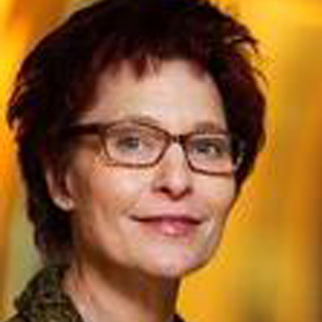 Siobhán Wills is a professor of law at the Transitional Justice Institute, Ulster University. She was awarded a British Academy Mid-Career Fellowship 2015-2016 to research use of force by Chapter VII mandated peacekeepers operating in situations where there is no armed conflict and was subsequently awarded an AHRC research grant 2016-2017 to make a documentary film, jointly with Prof McLaughlin (QUB), about peacekeeping in Haiti. She is a member of the International Law Association Committee on the Use of Force and of the Royal Irish Academy Social Sciences Committee. Prior to her appointment at Ulster University she held the Ariel Sallows Visiting Chair in Human Rights at the University of Saskatchewan. She has also taught at University College Cork, where she was Co-Director of the Centre for Criminal Justice and Human Rights. She has been a visiting fellow at the School of Advanced Studies, University of London; a Fulbright Fellow; a Hauser Global Fellow at NYU; and a Fellow on the Harvard Human Rights Program. She has published widely on international humanitarian law issues, peacekeeping, and protection of civilians.
Siobhán Wills is a professor of law at the Transitional Justice Institute, Ulster University. She was awarded a British Academy Mid-Career Fellowship 2015-2016 to research use of force by Chapter VII mandated peacekeepers operating in situations where there is no armed conflict and was subsequently awarded an AHRC research grant 2016-2017 to make a documentary film, jointly with Prof McLaughlin (QUB), about peacekeeping in Haiti. She is a member of the International Law Association Committee on the Use of Force and of the Royal Irish Academy Social Sciences Committee. Prior to her appointment at Ulster University she held the Ariel Sallows Visiting Chair in Human Rights at the University of Saskatchewan. She has also taught at University College Cork, where she was Co-Director of the Centre for Criminal Justice and Human Rights. She has been a visiting fellow at the School of Advanced Studies, University of London; a Fulbright Fellow; a Hauser Global Fellow at NYU; and a Fellow on the Harvard Human Rights Program. She has published widely on international humanitarian law issues, peacekeeping, and protection of civilians.
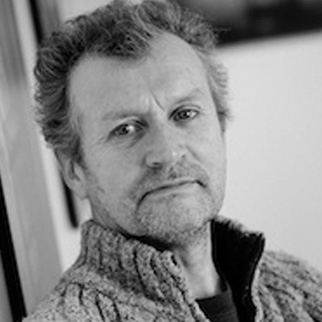 Cahal McLaughin is Chair of Film Studies at Queen’s University Belfast, Director of the Prisons Memory Archive (www.prisonsmemoryarchive.com) and director of the Centre for Documentary Research at QUB (www.cdr.qub.ac.uk). As a documentary filmmaker, he has engaged with methods of how we might address the legacy of conflicted pasts in ways that acknowledge the vulnerability of our memories and the contested nature of our narratives. His other films include Armagh Stories: Voices from the Gaol (2015), on the female prison during the Troubles in the North of Ireland, We Never Give Up II (2012), on reparations in South Africa. His publications include Recording Memories from Political Conflict: a filmmaker’s journey (2010) Intellect, and Who Tells What to Whom and How: the Prisons Memory Archive http://www.p-e-r-f-o-r-m-a-n-c-e.org/?p=139.
Cahal McLaughin is Chair of Film Studies at Queen’s University Belfast, Director of the Prisons Memory Archive (www.prisonsmemoryarchive.com) and director of the Centre for Documentary Research at QUB (www.cdr.qub.ac.uk). As a documentary filmmaker, he has engaged with methods of how we might address the legacy of conflicted pasts in ways that acknowledge the vulnerability of our memories and the contested nature of our narratives. His other films include Armagh Stories: Voices from the Gaol (2015), on the female prison during the Troubles in the North of Ireland, We Never Give Up II (2012), on reparations in South Africa. His publications include Recording Memories from Political Conflict: a filmmaker’s journey (2010) Intellect, and Who Tells What to Whom and How: the Prisons Memory Archive http://www.p-e-r-f-o-r-m-a-n-c-e.org/?p=139.

